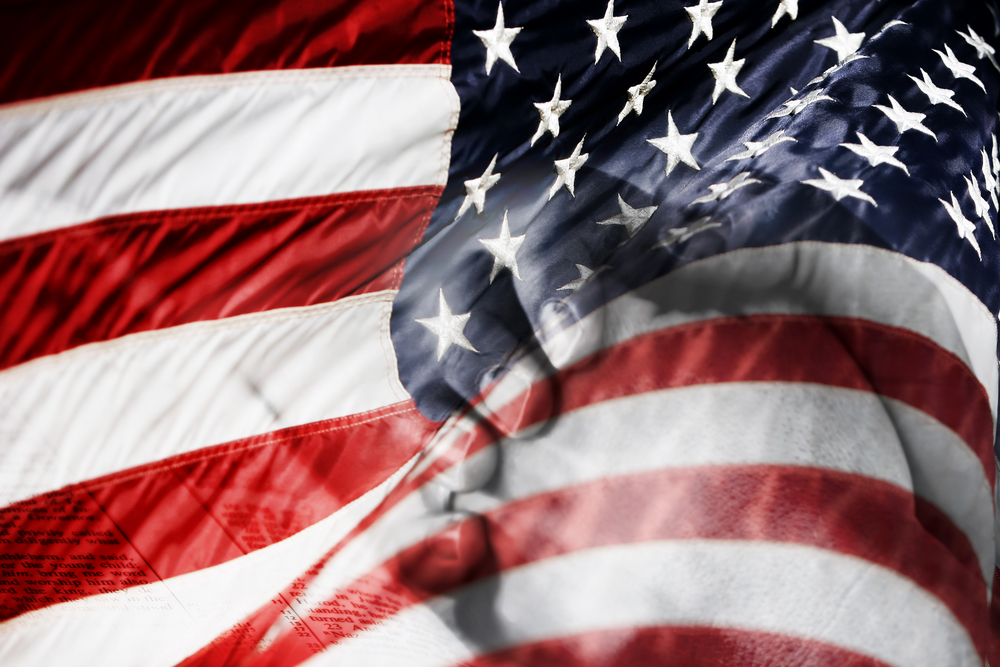
This question is legitimate. It is legitimate for a church like Faith in a university town who has many internationals attend our service. It is legitimate for our church because we have some Americans who married a foreign national. Is it appropriate for American churches to celebrate American national holidays? This argument needs to take a couple steps. Bear with me.
Acceptability of Dual Citizenship
First, I do not believe that the writers of the constitution imagined that the separation of church and state meant an absolute distinction, as if I cannot think about God in the public square. Our currency was inscribed with “In God We Trust,” a chaplain still has an office in the Capital building, and references to God are a regular part of public life. Instead, the writers of the constitution made it clear that the government could not interfere with religious affairs. There could be no state religion as there was during much of Europe’s history. The codified belief was simply that the government could not determine the religious views of the people. Their point cuts both directions, in other words, a religious group cannot control government. The issue seems to revolve around control—our forefathers understood their own European history quite well, not to mention their Bibles.
Second, while the Scripture emphasizes the kingdom yet to come (our citizenship in heaven) the fact that we are a people for God’s own possession (our goal to glorify God and proclaim his excellence) gave Paul a freedom from being unafraid of his Roman citizenship. He even uses it to his advantage on occasion. Thus, Paul, being a citizen of heaven first did not have to renounce his national citizenship (either Roman or Jewish).
This evidence seems to suggest a few important conclusions:
- Our focus must always be on Christ
- We must already remember that we are foreigners on our way to the celestial city
- We can take advantage of every opportunity afforded by US citizenship
But this argument stops far short of church worship. It acknowledges who we are in Christ and the place, by God’s sovereign hand, which we were born.
Wisdom of Proportionate Celebration
Admittedly, I think the issue is a matter of wisdom. Here are three reasons why I believe it is entirely appropriate to celebrate national heritage in the US.
#1. Because our church is located in the US, taking advantage of the freedoms of the US, and made up largely of Americans.
I am not interested in offending the internationals, but nor am I wanting to act as if our church is not in the United States either. I akin this argument to whether or not a missionary should learn the language of the people he is seeking to serve—even if he can get by with just English. I would wholeheartedly support missionaries learning the language, just as I support our church remembering the national holidays. In fact, when missionaries live in other countries, I would support them being respectful to and even celebrating the national holidays in the countries they live. Why? Because they are serving people of that nation.
#2. Because celebrating national holidays is compassionate
I realize that each holiday has its own emphasis (memorial day is for those who died, veterans day is for those who are still living, and independence day is celebrating our ability to self-govern), but honestly many people lump these ideas together. National holidays remind us of those who serve, those who died, and the privileges we enjoy. National holidays also encourage us to reflect. I have family members KIA who fought for freedom. I have others who were MIA/POWs and still others who served without major combat incident. Days like Memorial Day or July 4 inevitably remind me of those who keep the freedom I enjoy possible. Many of our church family are comforted by the care and concern at a personal level. The respect given knowing that your dad, your mom, your grandfather/mother gave their last measure of devotion to their country.
#3. Because these celebrations represent a small portion of our overall ministry
We have two patriotic holidays we celebrate in the church (Memorial Day and Independence Day). On these days we give approximately 10-20 minutes of focus on patriotic issues. So the church family celebrates our nation for 30 minutes a year, you suppose this makes us no longer interested in our heavenly home? Seriously? No way! Hundreds of hours are given to teaching our identity in Christ, our union with Christ, living out the gospel, longing for our heavenly home, helping people remember that in suffering a better home awaits, helping people keep one eye here and one eye looking for the blessed hope, and helping people proclaim the gospel of Jesus.
I imagine that most churches spend more than 30 minutes a year giving announcements. I think my systematic theology professor spoke wisely when he said “balance is the most important English word not found in the Bible.” He meant “balance” was not in the Bible, although the concept is in every book.
Answering Objections
I am not persuaded by those who say that people might believe America is the Kingdom if we celebrate patriotism. That statement is so amazing it doesn’t even need answered. One trip to the local soup kitchen, homeless shelter, or unemployment line will quickly dispel such nonsense.
It is also important that I did not answer based on the mix of politics and religion in Israel. The old covenant has been abolished.
In closing, I often wonder if people who write against celebrating any type of national identity would have done so in 1945. Four hundred thousand men (a few women) never returned home. Thousands of young women never saw their husbands, and countless children had few if any memories of their fathers. Could the church not acknowledge their national identity while focusing on their spiritual identity?
 Church
Church